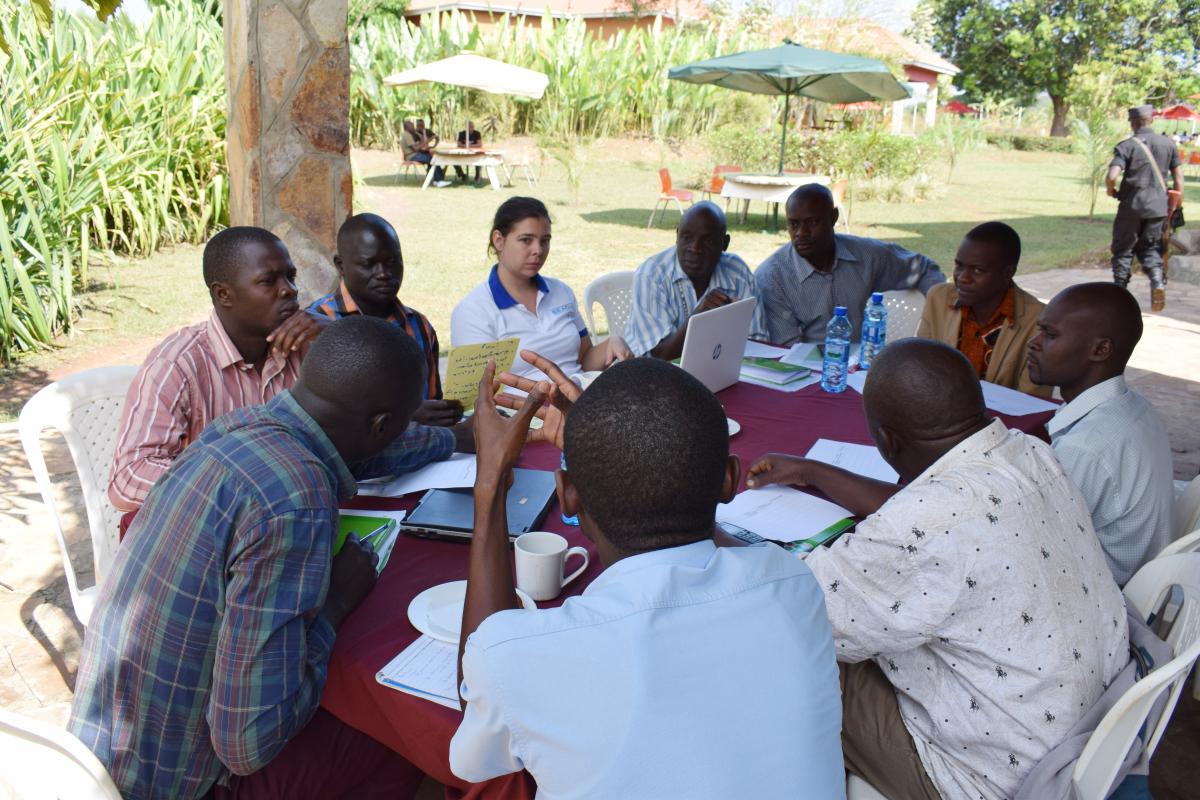PPP IN SKILLS DEVELOPMENT: MAKING IT HAPPEN
It is a sunny Friday afternoon in Uganda’s South-Western District of Masindi and a seemingly contented Sam Kasangaki holding a notebook and pen emerges out of a room which has been the venue of a workshop for 5 days now. Sam is the director of a local company called Farmers Engineering Solution Limited.
“I have been trained in the establishment of relevant public-private partnerships in skills development. Previously, we in the private sector never knew how to coordinate our activities with the training institutions,” says Sam.
Sam is one of the 60 stakeholders of the Support to Skilling Uganda (SSU) project trained on public-private partnership (PPP). The workshop exposed participants to the benefits of PPP in skills development while exploring the challenges and success factors for partnership.
Any partnership should have clear roles and responsibilities for each party and to make this happen, participants were equipped on how to develop a memorandum of understanding and other tools.
Participants included Directors and Instructors of Vocational Training Institutions (VTIs), Ministry of Education and Sports (MoES) officials, Private Sector companies and Business Membership Organisations such as Uganda Small Scale Industries Association (USSIA).
Sam is a master craft person (MCP). MCP is a skilled individual of the private sector employed in a particular trade such as welding and metal fabrication. Like other MCPs, Enabel trained him so that he could pass his knowledge and skills to trainees in VTIs. This was aimed at addressing the disconnect between the training offered by VTIs vis –a- vis the needs of the labour market which has rendered many graduates unemployed.
Mwesigwa Robert, the Director of Millennium Business Institute in Hoima District confirms that many of his graduates are unemployed.
“Only 40% of my trainees get employed after graduation. The remaining 60% is not absorbed due to reasons such as the inability to use the latest technology in the industry,” says Robert.
He attributes this to the absence of a formal and well-defined partnership between his institution and the private sector. Robert says if such partnership existed, they would have had an opportunity to engage with the private sector on how to align their training to labour market needs. He says this would result in the production of graduates with the skills that the private sector requires. He, however, expresses relief that the PPP workshop has positioned them to change the status quo.
“We now know who to partner with, the area of partnership and how to formalize this relationship,” says Roberts.
He says the benefits of such partnership are enormous, describing it as WIN-WIN-WIN. Robert explains that working with the private sector will enable training institutions to improve the quality of their training leading to the production of more employable graduates. As for the private sector, it will have quality employees who will not need additional training which would otherwise be a cost to the business.
The PPP workshop is part of the initiatives under the SSU intervention implemented by Enabel aimed at promoting partnership between training institutions and the labour market. The project is implemented in three regions of Uganda namely; Albertine/Rwenzori, Karamoja and Northern Uganda. The overall objective of SSU is to enhance the employability of Ugandan youth through better quality of instruction and training in skills development.
Dernières actualité de ce projet
Pas d'actualité

